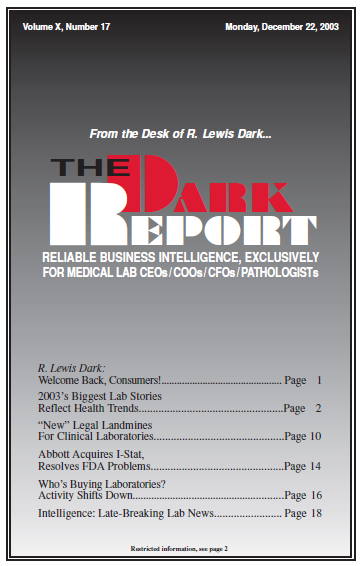CEO SUMMARY: On December 15, Abbott revealed that it would pay $392 million to acquire I-Stat. Days later, on December 18, Abbott disclosed that the FDA had deemed its Lake County, Illinois diagnostic manufacturing plant to be “in substantial conformity” with the Quality System Regulation. Abbott can now restart manufacturing and sales of test kits …
Abbott Acquires I-Stat, Resolves FDA Problems Read More »
To access this post, you must purchase The Dark Report.


